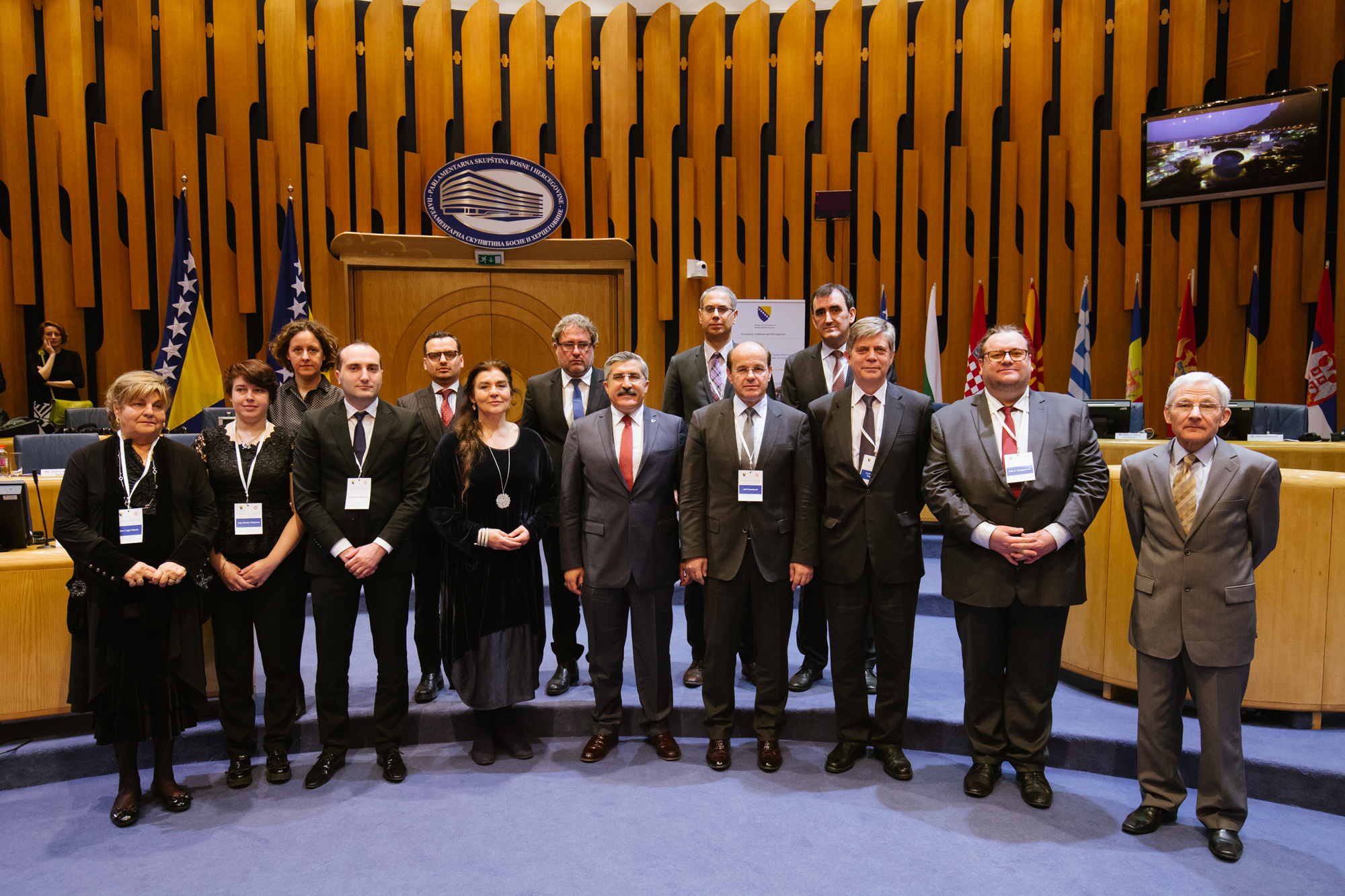ALL NEWS
SECTORS
CATEGORIES
04/04/2018

A Ministerial Conference of the Council of Ministers of Culture of South East Europe was held in Sarajevo, attended by the representatives of the 12 member countries of the platform, and within the framework of the chairmanship of Bosnia and Herzegovina of that body.
Minister of Civil Affairs of BiH assessed the extremely successful year of the presidency of the Council of Ministers of Culture of South East Europe.
"Bosnia and Herzegovina was accepted as a member of the World Heritage Committee. Our first two goods, Sarajevo Haggadah and the Collection of Manuscripts of Gazi Husrev – bey's Library, were inscribed in the UNESCO Memory of the World International Register. Konjic Woodcarving was inscribed on the Representative List of the Intangible Heritage of Humanity. The fourth Biennial of Contemporary Art was held in Tito's bunker in Konjic, last year. This is one of the successful examples of regional cooperation, bearing in mind that until now the partner countries were: Serbia, Croatia, Montenegro, Turkey, Albania, Austria, Germany, Poland, Italy. The Biennial has the patronage of UNESCO and Council of Europe" said Minister Osmanović and reminded that the entry of stećak on the UNESCO World Heritage List was the result of an initiative created within CoMoCoSEE.
The Minister announced support for the continuation of our regional cooperation in the field of combating the illegal trade in cultural goods in South East Europe, as well as strong support for work on joint regional projects, especially considering the opportunities provided by EU funds available to us, such as Creative Europe, Horizon, Europe for citizens and others.
The result of the BiH presidency of the Council of Ministers of Culture of South Eastern Europe is also the Declaration, which was unanimously adopted at the Ministerial Conference in Sarajevo.
The Declaration confirms that the Platform Member States will continue to strengthen cooperation through the exchange of knowledge and best practices in the cultural sector, exchange of experiences in linking with other sectors and sectoral policies with the aim of achieving the goals of the Agenda for Sustainable Development 2030. Cooperation will focus on the protection area and the preservation of cultural heritage and the application of new technologies and digitization.
There is support for the direct cooperation of cities in the field of culture, especially given the opportunities provided by the network of UNESCO's creative cities, the selection of cities for the European Capital of Culture and other initiatives.
The establishment of thematic cultural routes in the region of Southeast Europe and their inclusion in the cultural routes of the Council of Europe, as well as a stronger connection with the sector, has been initiated.
Bosnia and Herzegovina ends its presidency of the Council of Ministers of Culture of South East Europe at the Conference in Sarajevo, and the presidency is taken over by the Republic of Bulgaria. Bulgarian Minister of Culture Boil Banov said that the continuation of the institutional strengthening of the platform will be a priority for the Bulgarian presidency and expressed the expectation that the European Union will support the work of CoMoCoSEE.
Cooperation within the Council of Ministers of Culture of South East Europe was established in 2004 in Mostar, when Bosnia and Herzegovina and the City of Mostar, during the celebration of the renovation of the Old Bridge, hosted the First Regional Ministerial Conference devoted to cultural heritage in Southeast Europe. Cooperation takes place at the ministerial level and at the expert level, and the results are visible through the number of implemented projects. All initiatives and activities from the beginning have strong support from UNESCO, the Council of Europe and the European Union.